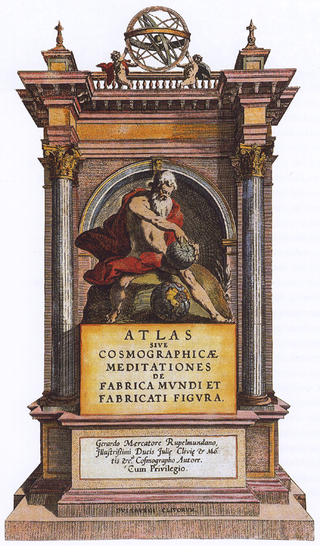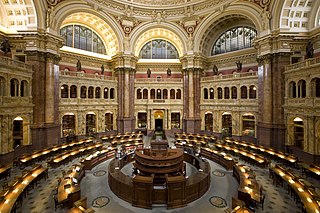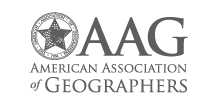
An atlas is a collection of maps; it is typically a bundle of maps of Earth or of a region of Earth.

The Internet Archive is an American digital library founded on May 10, 1996, and chaired by free information advocate Brewster Kahle. It provides free access to collections of digitized materials including websites, software applications, music, audiovisual and print materials. The Archive also advocates for a free and open Internet. As of January 1, 2024, the Internet Archive holds more than 41 million print materials, 8.4 million videos, 0.89 million software programs, 14.7 million audio files, 4.4 million images, 240,000 concerts, and over 735 billion web pages in its Wayback Machine. Its mission is to provide "universal access to all knowledge".

ProQuest LLC is an Ann Arbor, Michigan-based global information-content and technology company, founded in 1938 as University Microfilms by Eugene Power.

Digitization is the process of converting information into a digital format. The result is the representation of an object, image, sound, document, or signal obtained by generating a series of numbers that describe a discrete set of points or samples. The result is called digital representation or, more specifically, a digital image, for the object, and digital form, for the signal. In modern practice, the digitized data is in the form of binary numbers, which facilitates processing by digital computers and other operations, but digitizing simply means "the conversion of analog source material into a numerical format"; the decimal or any other number system can be used instead.

A research library is a library that contains an in-depth collection of material on one or several subjects. A research library will generally include an in-depth selection of materials on a particular topic or set of topics and contain primary sources as well as secondary sources. Research libraries are established to meet research needs and, as such, are stocked with authentic materials with quality content. Research libraries are typically attached to academic or research institutions that specialize in that topic and serve members of that institution. Large university libraries are considered research libraries, and often contain many specialized branch research libraries. The libraries provide research materials for students and staff of these organizations to use and can also publish and carry literature produced by these institutions and make them available to others. Research libraries could also be accessible to members of the public who wish to gain in-depth knowledge on that particular topic.

Waldo Rudolph Tobler was an American-Swiss geographer and cartographer. Tobler is regarded as one of the most influential geographers and cartographers of the late 20th century and early 21st century. He is most well known for coining what has come to be referred to as Tobler's first law of geography. He also coined what has come to be referred to as Tobler's second law of geography.
Wilbur Zelinsky was an American cultural geographer. He was most recently a professor emeritus at Pennsylvania State University. He also created the Zelinsky Model of Demographic Transition.

The American Association of Geographers (AAG) is a non-profit scientific and educational society aimed at advancing the understanding, study, and importance of geography and related fields. Its headquarters is located in Washington, D.C. The organization was founded on December 29, 1904, in Philadelphia, as the Association of American Geographers, with the American Society of Professional Geographers later amalgamating into it in December 1948 in Madison, Wisconsin. As of 2020, the association has more than 10,000 members, from nearly 100 countries. AAG members are geographers and related professionals who work in the public, private, and academic sectors.
The University of British Columbia Library is the library system of the University of British Columbia (UBC). The library is one of the 124 members of the Association of Research Libraries (ARL). In 2017, UBC Library ranked 29th among members of the ARL for the number of volumes in library, making it the third largest Canadian academic library after the University of Toronto and the University of Alberta. However, UBC Library ranked 23rd for the titles held and second in Canada, and had a materials expenditures of $13.8 million, placing it 44th.

In conservation, library and archival science, preservation is a set of preventive conservation activities aimed at prolonging the life of a record, book, or object while making as few changes as possible. Preservation activities vary widely and may include monitoring the condition of items, maintaining the temperature and humidity in collection storage areas, writing a plan in case of emergencies, digitizing items, writing relevant metadata, and increasing accessibility. Preservation, in this definition, is practiced in a library or an archive by a conservator, librarian, archivist, or other professional when they perceive a collection or record is in need of maintenance.
Cindi Katz, a geographer, is Professor in Environmental Psychology, Earth and Environmental Sciences, American Studies, and Women's Studies at the CUNY Graduate Center. Her work concerns social reproduction and the production of space, place and nature; children and the environment; the consequences of global economic restructuring for everyday life; the privatization of the public environment, the intertwining of memory and history in the geographical imagination, and the intertwined spatialities of homeland and home-based security. She is known for her work on social reproduction and everyday life, research on children's geographies, her intervention on "minor theory", and the notion of counter-topography, which is a means of recognizing the historical and geographical specificities of particular places while inferring their analytic connections to specific material social practices.
Chronicling America is an open access, open source newspaper database and companion website. It is produced by the United States National Digital Newspaper Program (NDNP), a partnership between the Library of Congress and the National Endowment for the Humanities. The NDNP was founded in 2005. The Chronicling America website was publicly launched in March 2007. It is hosted by the Library of Congress. Much of the content hosted on Chronicling America is in the public domain.

The Library of Congress (LOC) is a research library in Washington, D.C., that serves as the library and research service of the U.S. Congress and the de facto national library of the United States. Founded in 1800, the library is the United States's oldest federal cultural institution. The library is housed in three elaborate buildings on Capitol Hill. It also maintains a conservation center in Culpeper, Virginia. The library's functions are overseen by the Librarian of Congress, and its buildings are maintained by the Architect of the Capitol. The Library of Congress is one of the largest libraries in the world. Its collections contain approximately 173 million items, and it has more than 3,000 employees. Its "collections are universal, not limited by subject, format, or national boundary, and include research materials from all parts of the world and in more than 470 languages."
Kenneth C. Martis is an American political geographer notable for his mapping and documentation of the electoral history of the United States. He is a Professor Emeritus in the Department of Geology and Geography at West Virginia University.
This is a list of encyclopedias and encyclopedic/biographical dictionaries published on the subject of geography and geographers in any language. Entries are in the English language except where noted.

The Metropolitan New York Library Council (METRO) is a non-profit organization that specializes in providing research, programming, and organizational tools for libraries, archives, and museums in the New York metropolitan area. The council was founded in 1964 under the Education Law of the State of New York.
Basil Gomez is an Anglo-American geomorphologist with a particular interest in fluvial processes and the sources, transport and sinks of riverine sediment and particulate matter.

Ruth Wilson Gilmore is a prison abolitionist and prison scholar. She is the Director of the Center for Place, Culture, and Politics and professor of geography in Earth and Environmental Sciences at the Graduate Center of the City University of New York. She has been credited with "more or less single-handedly" inventing carceral geography, the "study of the interrelationships across space, institutions and political economy that shape and define modern incarceration". She received the 2020 Lifetime Achievement Award from the American Association of Geographers.
John Fraser Hart is an American geographer. Over the course of his career he published over 150 scholarly papers, over a dozen books, and taught over 50,000 university students in his 65 years of teaching from 1949 until his retirement in 2015.










